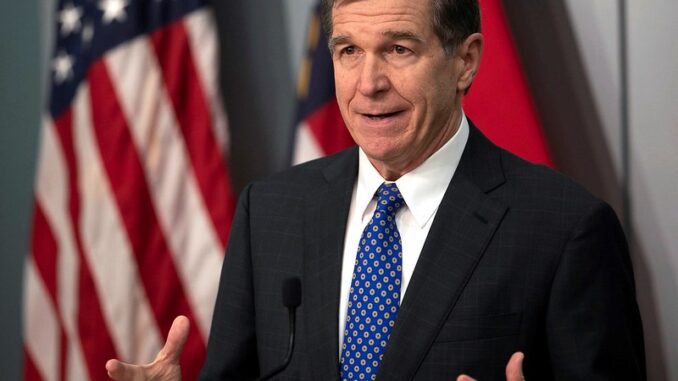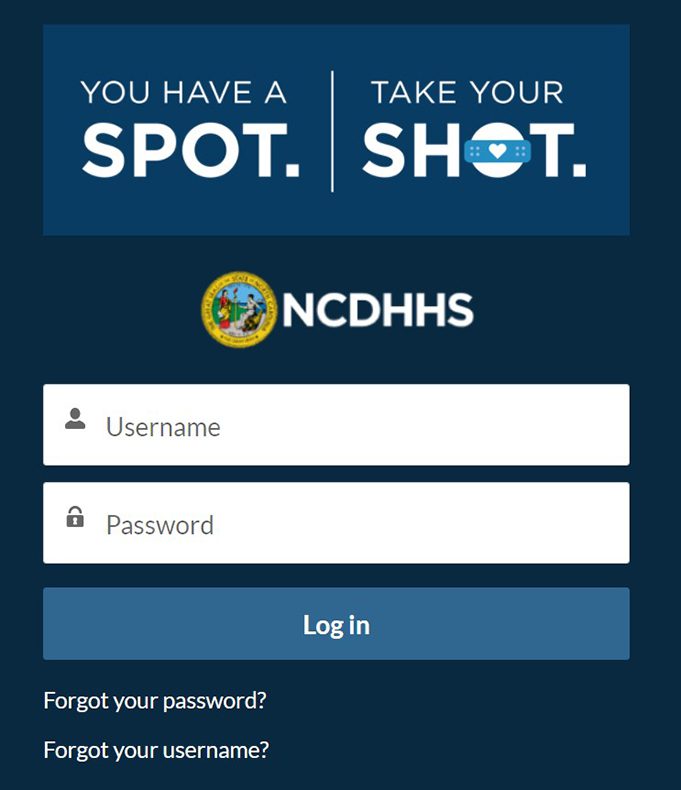
RALEIGH — After sidestepping questions earlier this year about whether or not North Carolina would be creating a “vaccine passport,” Gov. Roy Cooper’s administration has created a “certified” state vaccination card for COVID-19.

In late March, Cooper said, “We want to be able to help people to be able to show others that they have gotten the vaccine, because a lot of people are going to want that.”
At the time, Senate Leader Phil Berger (R-Eden) called the idea of vaccine passports “ridiculous” and indicated he doesn’t believe the government should mandate COVID-19 vaccinations.
Cooper also said earlier this year that his administration was figuring out a way to provide proof of vaccination and that there were discussions taking place “about the best way to do that.”
Those discussions appear to have ended, and a proof-of-vaccination card has been created. The newly created card, found on the N.C. Department of Health and Human Services (NCDHHS) website, is only for those who have been fully vaccinated. There is no mention or provision for those who have recovered from COVID-19 and have natural immunity.
The frequently asked questions (FAQ) for the vaccination-proof card repeatedly states that private industries, event venues and employers can require such a card from patrons and workers in order to access their facilities and services.
“Employers in North Carolina can ask employees their vaccination status and require proof of vaccination or a valid medical or religious exemption. Employers cannot require that their employees share any other personal medical information,” the FAQ section for employers reads.
Nowhere in the NCDHHS FAQ is “religious exemption” defined.
One of the FAQ’s topics addresses whether proof has to be provided for teen attending schools, sports and summer camps if those venues ask for proof of vaccination. The FAQ says that the North Carolina Department of Public Instruction “does not currently require proof that youth have received a COVID-19 vaccination to participate in school-related activities.”
The answer is different for private businesses or venues where summer camps or sports camps operate. Those entities “can require proof of vaccination to take part in certain activities such as sports teams or camps.”
Additionally, for college level students, the NCDHHS FAQ says they have to provide proof if required by the school, even at public universities in North Carolina. The FAQ equates the COVID-19 virus vaccination to that of “measles, mumps and rubella.”
“Most colleges and universities already require on-campus students to show proof that they are vaccinated against viral diseases like measles, mumps and rubella, or provide a valid religious or medical exemption,” the FAQ states.
Private schools like Duke University, Campbell University and Davidson College all have language on their websites requiring students to present proof of vaccination in order to attend classes on campus.
At Duke University, “All students will be tested upon arrival at Duke and must then participate in weekly surveillance testing regardless of their vaccination status.”
Duke also offers a “religious exemption,” but states that those granted such an exemption will be “subject to daily symptom monitoring, regular testing, masking and other protocols applicable to those who have not been vaccinated.”
Those seeking religious exemptions at Duke have to complete a form by Sept. 1 that includes filling out a “description of your religious beliefs that are contrary to the COVID-19 vaccine.”
The University of North Carolina public university system is also requiring students to provide proof of vaccination.
At UNC Asheville, all students and guests have to show a negative COVID-19 test result from a test taken “within 4 days of move-in or they can be exempt from testing by providing proof of COVID-19 vaccination.” All persons must provide that negative test result or proof of vaccination at the check-in station before they will be allowed to move into their dorm.
UNC Chapel Hill takes it a step further, requiring faculty, students and staff to register their vaccination status using the “CarolinaConnect” COVID-19 Vaccine Certification portal. Students will asked to confirm or deny they have received a COVID-19 vaccine or can choose not to answer.
UNC Chapel Hill students who have not been fully vaccinated or choose not to answer will be “required to participate in the Carolina Together Testing Program in the fall.”
The testing situation is similar at UNC Wilmington, where the website states “students living on campus this summer who are not vaccinated will be required to have weekly surveillance testing.”
A May message from the UNC Wilmington Chancellor indicated that students providing proof that they are fully vaccinated will be exempt from both the return-to-campus testing and the surveillance testing.
While North Carolina State University plans a return to “normal operations” for fall 2021, the school’s website says that “Effective June 1, 2021, all those who have received vaccines on campus or who provide proof of vaccination status through the HealthyPack Portal will be exempt from any required surveillance testing.”
NCSU also will require a mask for everyone on campus “regardless of vaccination status — while indoors (with a few exceptions),” and that anyone accessing campus “must conduct daily symptom checks regardless of whether they participate in testing.”
According to COVID-19 issue tracking by BallotPedia, 19 states prohibit proof-of-vaccination requirements. All 19 have Republican governors, and of those states, 11 governors have banned proof-of-vaccination requirements using an executive order.
Lawmakers in eight states passed legislation to ban proof-of-vaccination requirements.
Only four states have some kind of digital vaccination status portal or app. Those states, all with Democratic governors, are California, New York, Hawaii and Oregon. New York was the first to institute a vaccine passport, dubbed the “Excelsior Pass.” North Carolina would now be the fifth state in that list with its new state “certified” vaccination card.




